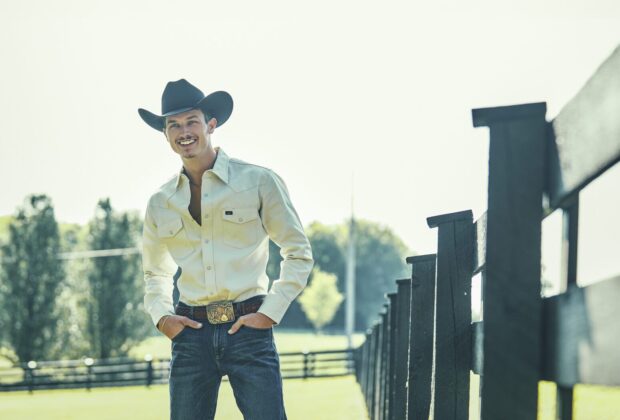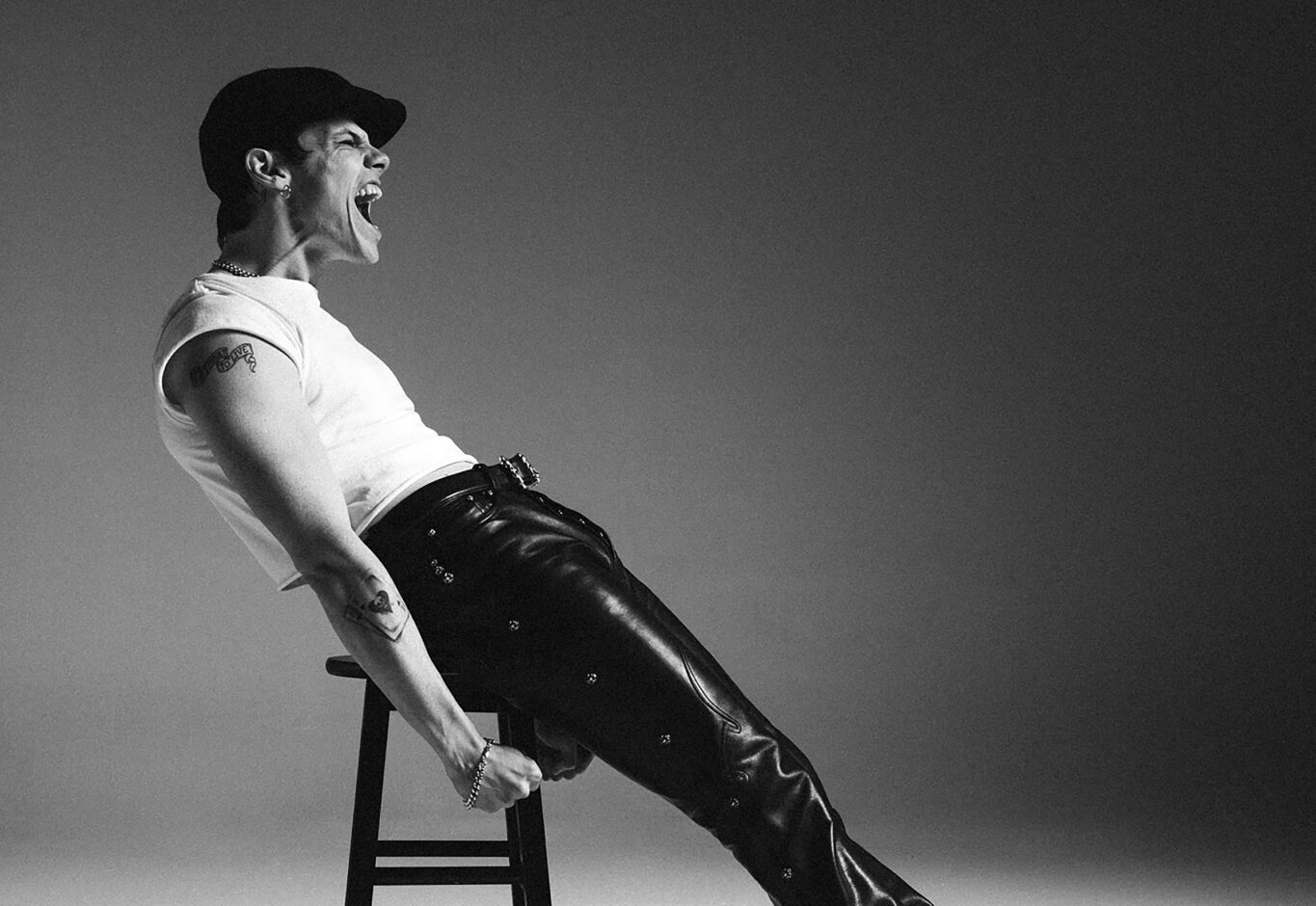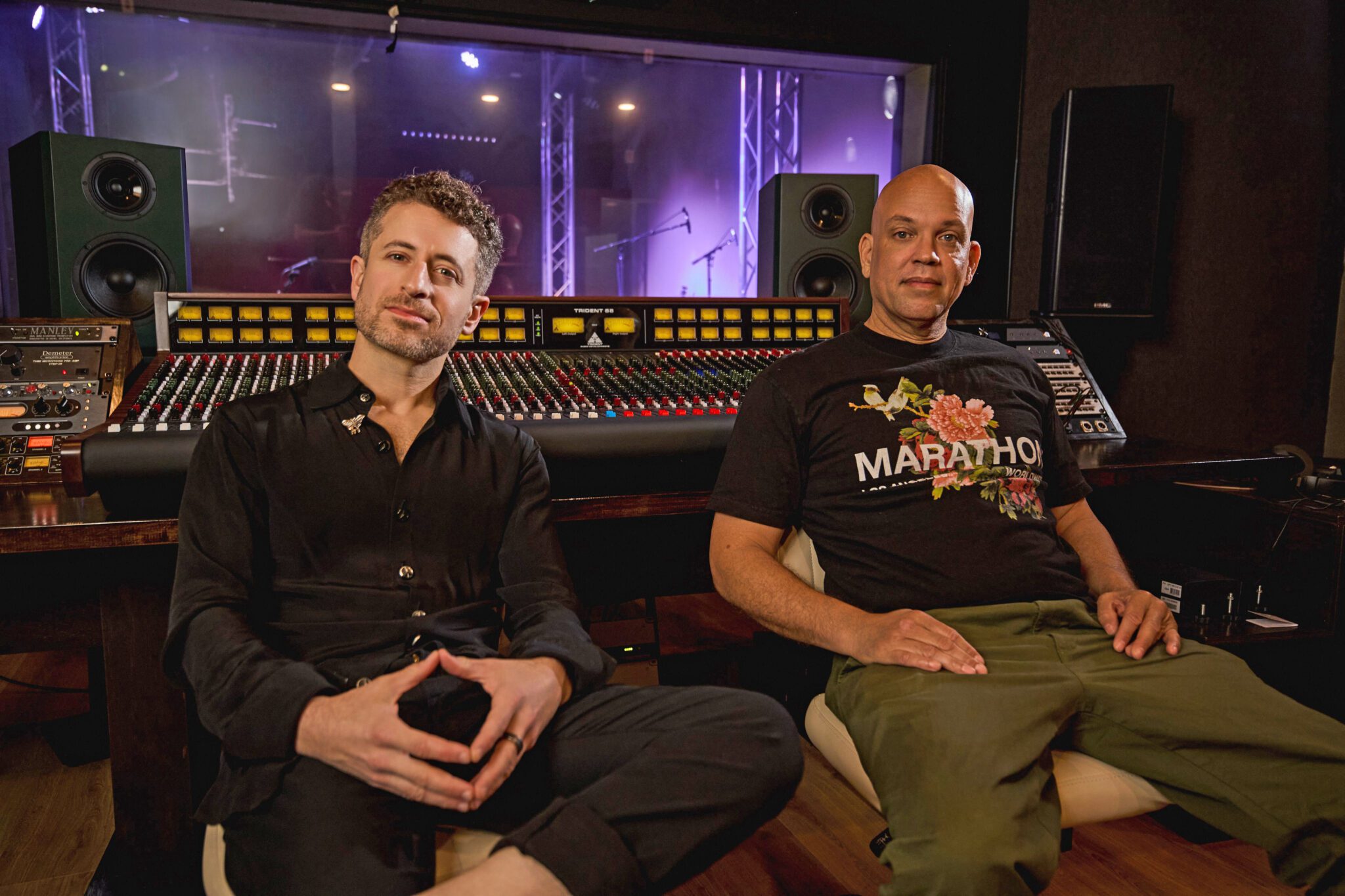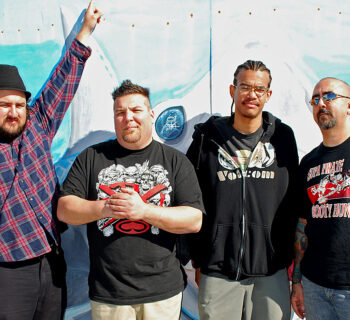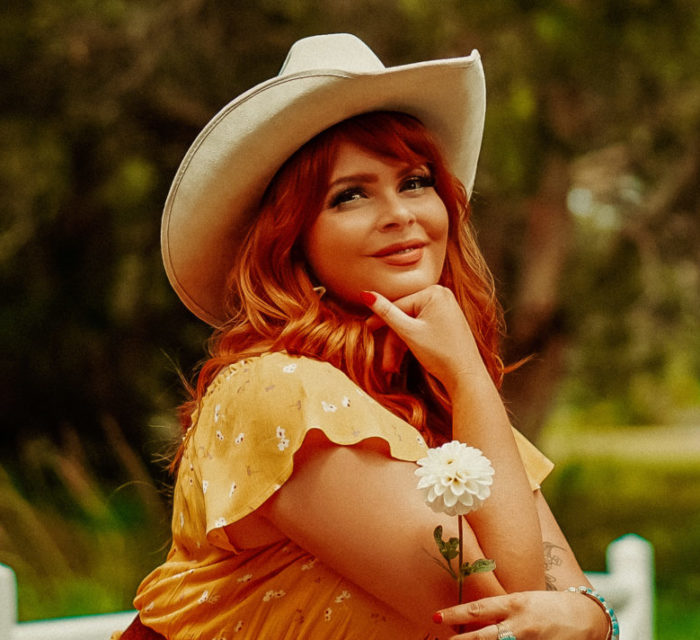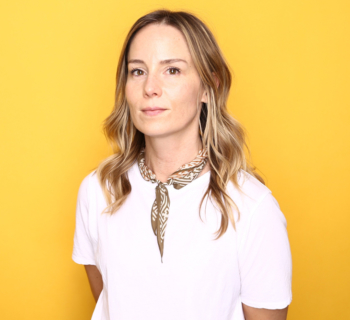Music Connection returns with its highly anticipated annual feature, shining a spotlight on rising stars and legendary icons from across the musical spectrum. This year’s lineup offers a compelling blend of professional insights and personal stories from an array of standout artists. Among them is the versatile GRAMMY-nominated and Juno Award-winning Gino Vannelli, R&B/rock ‘n’ roll legend Mitch Ryder, Detroit’s Queen of the Blues, Thornetta Davis, soulful GRAMMY-nominated singer-songwriter Janiva Magness, and emerging country artist Spencer Hatcher.
SPENCER HATCHER
Anthony Priwer
anthony@brownsellersbrown.com
When talking country music, 27-year-old Spencer Hatcher comes by it honestly. Raised on a farm in Virginia’s Shenandoah Valley, he cut his teeth on bluegrass and traditional country as a child. Growing up in a musical home, he quickly learned the art of singing and became proficient on banjo and guitar. Recently signed to Nashville-based Stone Country Records in October 2024, Hatcher released a debut EP that same month, featuring three signature songs anchored by the timely anti-divisive track “Cold Beer and Common Sense.” It’s a song crafted after Hatcher’s own heart about people setting aside their differences and embracing acceptance.
Music as a Career: “I think I always wanted to do music full-time. That’s always been the dream. By the age of four I was singing. It wasn’t my plans, necessarily, to only be in music, but it turned out that way at the height of COVID when there were no other options. Nobody was working and everybody was home. I just finished college so I was looking for a job. And some songs I posted went viral. And this is when I knew this was all I was gonna do for the rest of my life.”
On Being a Traditional Country Artist: "To me, that means keeping it real. I don’t use computers, synthesizers, loops, and all these things in my music. What you hear on record can be replicated live. I come from a bluegrass background and have played it for many, many years. Growing up I didn’t listen to any country music past 1990. I didn’t listen to anything that was modern.”
Vocal Care: “I don’t do anything in particular. I just do what I do. I might do a little warming up before I go on stage. If you’re doing three-to-four-hour shows, your voice has to have some conditioning going in.”
Working in the Studio: “In the studio, you want to get it as perfect as you can. And, thankfully, in the studio you can do do-overs, where at a live show it’s one and done. I try to prep for the studio a little more than the stage. In the studio you’re also limited on the amount of time you have to get things done.”
Challenges of Being a Country Artist Today: “Everything I do is fun and a blessing in my life. But something that’s hard is that you’ll never please everybody. And I tend to ignore the haters. I just do what I want. Also, the schedules can be hard sometimes. Many times, I’ve done two shows in a day, where you’re up at 7 a.m. and going to sleep at 3 a.m. And, as an artist, you’re subject to a lot of judgment. You might really stand behind some work you’ve done but the public doesn’t it see it the same way. And you’ve gotta find a way to navigate that.”
Pursuing Social Media: “It’s so crucial in today’s world. If you wanna be a musician you also have to be a famous content creator. It’s really hard to do. But social media is how you’re gonna make it anymore. It’s something that I took to for fun and sing the songs that I wanna sing. If I had any tips, I would say to just be yourself. You don’t wanna put on a mask every time there’s a camera, and when people meet you in real life you’re not anything like that. Also, just be friendly and have fun with it. And don’t be discouraged if you don’t have a million views every single video. Just keep after it and post your content. It takes a long time, but you’ll find your following.”
Best Advice You’ve Gotten: “I’ve got the most supportive parents in the world. They never said I needed to do something else. My hometown is the same way. Very few people discouraged me from doing what I did. If some had, I don’t know, maybe I would’ve quit because it’s hard. But just having people believe in you was so important for me. And the thing that always kept me going was just never quit. If you never quit then there’s no way that you won’t make it. My advice is to chase your dream with everything you have because you’ve only got one life and one shot.”
THORNETTA DAVIS
thornettad@aol.com
Thornetta Davis is the undisputed “Queen of Detroit Blues.” She has performed at some of the biggest blues and jazz venues in the world such as The National Centre for Performing Arts in Mumbai, India, The Umbria Jazz Festival in Umbria, Italy, and Notodden Blues Festival in Norway. She has sung with performance artist and playwright Taylor Mac and has shared the stage with Bonnie Raitt, Gladys Knight, Etta James, Kid Rock, and Alberta Adams. She also sang backup on Bob Seger’s 1991 album The Fire Inside. She is a singer-songwriter with three solo albums to her credit, and has won “Best Female Blues Artist” in 2023 at the Blues Music Awards in Memphis, TN.
Diversity as an Artist: “I guess the reason that I’m so diverse is that I came from Detroit. When you’re from Detroit you’re surrounded by all different kinds of music. Before I started singing blues I was a Top 40 R&B singer trying to get a gig. I went to a jam session on the east side with these white boys playing blues and soul music. They asked me to join their band. As I was getting some notoriety with them, a rock band asked me to record with them. And I kept some jazz exposure in there too with the group Straight Ahead. I love doing it all!”
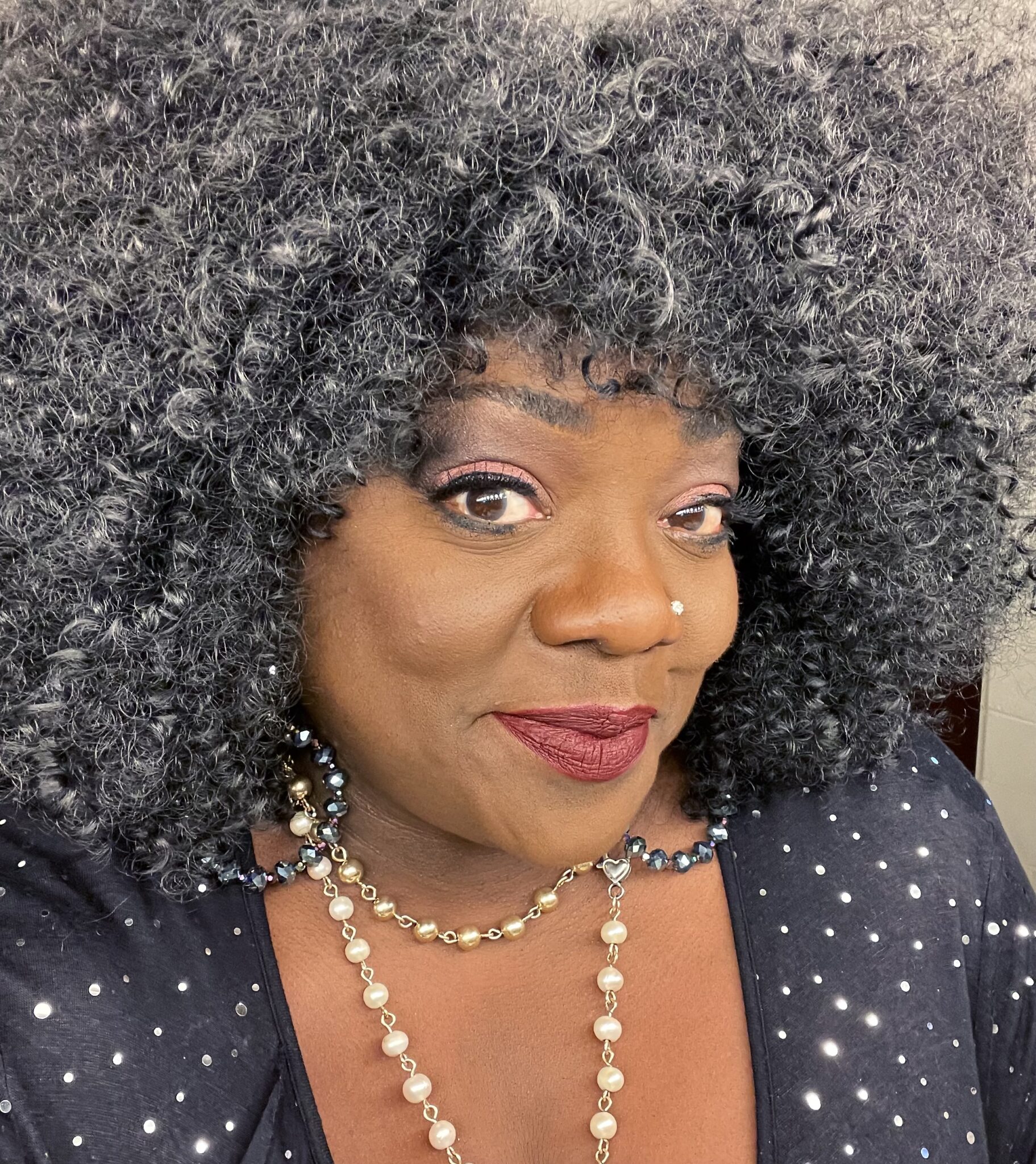
Keeping Your Voice in Shape: “I try to keep my throat lubricated with water and juices. I also drink hot water and honey with lemon. Walking keeps your lungs open and ready for the show. And I do a lot of stretching before a show too. I learned from a vocal coach about motor boating, making rumbling sounds with your lips. Also blowing bubbles with a straw keeps warmth on your vocal cords. But, mostly for me, I try to get a lot of rest. I don’t smoke and I don’t drink too much.”
Stage Highlight and Awkward Moment: “Opening for Bonnie Raitt at the Ann Arbor Blues Festival was a thrill. She came to my dressing room. She was in her 40s getting GRAMMYs and stuff. I was in my 30s and thought I was past my prime. So that gave me hope. So, here I am opening for her and she invites me on stage to sing an encore with her. I was blown away. My awkward moment was one night we played the Antifreeze Blues Festival at the Magic Bag Theater. The place was packed and we were jamming on stage. I got to rocking my head back and forth. I went back one time and just kept going. I went all the way back, and I felt my body going ‘I can’t catch myself’ (laughs). I ended up falling into the bass amp. The band looked down to make sure I was alright but just kept playing. I said ‘don’t stop!’ I jumped up and started singing again. Everybody thought it was part of the show (laughs).”
GINO VANNELLI
Andrea Faulk
afaulk@sropr.com
Canadian vocalist Gino Vannelli has one of the most distinctive voices in contemporary music. He’s sold over 20 million records worldwide and has crossed over seamlessly into the musical realms of jazz, rock, soul, and even classical. Originally signed to A&M Records, he began his career in 1973, scoring his first hit in 1974 with the danceable single “People Gotta Move.” He followed with subsequent hits like “I Just Wanna Stop” (1978), “Living Inside Myself” (1981), and “Wild Horses” (1987). His latest album, The Life I Got (To My Most Beloved) (COA Productions/BFD The Orchard), is perhaps his most intimate release, as it was written during his late wife Patricia’s battle with cancer. It’s his 22nd album overall, and his first new studio album since 2019.
MUSICAL TRAINING:“I started off as a drummer at nine years old. I also took piano and guitar lessons. I started getting serious about singing around 14 or 15. My father was a cabaret singer, so he gave me some essential pointers that really helped me understand the diaphragm, chest, and throat. I also took formal vocal lessons from teachers in L.A. and Portland.”
Musical and Cultural Influences: “I was raised in Montreal, which is its own culture. When I grew up in the '60s and '70s, it was a rhythmic culture, a jazz culture and an R&B culture. It wasn’t so much about folk or message music. It was about ‘move your bones’ culture.”

Vocal Care and Warm-Ups: “I don’t do very much. I’ll approach the first few songs with a little bit of care. It’s always helpful that the first couple songs in a set are not too taxing, so it serves as a warm up. But I think if you sing properly it’s kinda always there. Don’t expect to go on stage and do two hours if you haven’t done some form of cardio or your muscles are weak. Your diaphragm has to be very hard and solid because that’s where you sing from. If it’s not in shape it’s gonna loosen up and you’re not gonna be able to sing.”
On Being One of the First Caucasian Artists on Soul Train and Performing for the Pope: “One was a cultural highlight, and the other was an honor to perform for Pope John Paul. Stevie Wonder asked me to open up for him in 1974 because Chaka Khan couldn’t make it. And I played seven dates in front of Stevie. And, I think, the third date Don Cornelius from Soul Train heard about it and called to ask me to come do the show.”
Music as a Healer: “It’s more than a healer. It’s a pipeline out of yourself. It’s a cathartic experience to speak about your feelings in a way that’s understandable and even entertaining to others. And that’s the skill part that you learn because it’s not good enough just to spill your guts to people. There are a lot of sad stories out there. We don’t wanna listen to sad stories of people we don’t know, unless they do something for us and dig out and touch a nerve deep inside of us that brings out that same feeling. And I’m always aware that it’s not good enough to just speak your feelings. Compassion and empathy for their ears has to take place.”
Best Advice You’ve Ever Gotten: “I think the best advice is invisible. It’s a silent advice. It’s the advice of failure. The advice of failure is the one you really listen to. And words people have to give never sink in too much. But when you experience pain, failure, doubt, and making a huge mistake—that is your best teacher and advisor.”
JANIVA MAGNESS
info@janivamagness.com
Janiva Magness is a GRAMMY Award-nominated soul, blues and Americana singer, songwriter, and author. The Blues Foundation named her the B.B. King Entertainer of the Year in 2009, becoming only the second woman, after Koko Taylor, to receive such an honor. It was presented to her by Bonnie Raitt and B.B. King himself. She also published her memoir in 2019 called Weeds Like Us, which is currently being developed for television. Marking her 17th release, Back for Me (Blue Elan), is her most recent album.
Origin Story: “I started out as a recording engineer. I was in my early 20s and had some bad actors in my life that said I couldn’t sing. It was very uncharacteristic of me, but I believed them hook, line, and sinker. But I realized I needed to do something in music. So I got a scholarship to electronics school and did an internship at a recording studio in St. Paul, Minnesota. There was a late night session with a songwriter named Herman Jones. He needed some vocals on a track. I was in the front office asleep and the owner buzzed me to come to the studio. He knew I was a singer and asked me to record some vocals. I refused and said I’m not a singer. But he threatened to fire me if I didn’t do the track. I agreed, but was shaking in my boots. The next day the songwriter requested me again. And secretly I wanted to do it. So, the music came and got me. There’s our fate, which is what life hands us, and then there’s our destiny, which is what we make of what we’re given.”
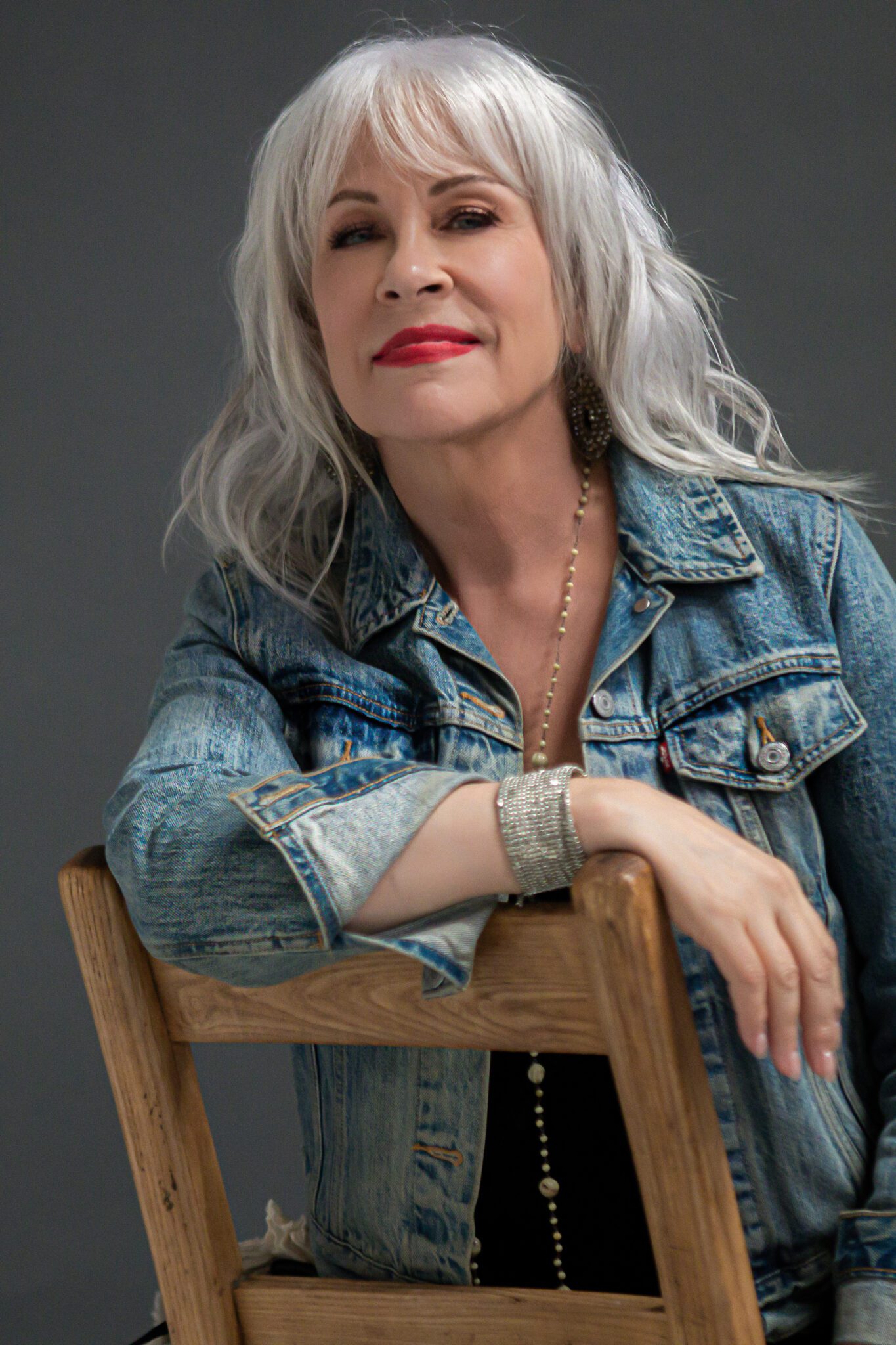
Qualities of a Good Producer: “I’ve had the same producer for the last 10 albums. I look for someone that has an intimate understanding of the music, not just a technician. I also look for someone I can respect and that they respect me. I have to be able to trust this person. And they have to have an artistic vision and understand my vision as well.”
Vocal Care: “I’m super regimented about my voice. I still do vocal warm-ups before I go sing anywhere. And I pretty much structure everything around the day I’m singing—what I eat, my physical workout that day, and when I do my vocal warm-ups. I use a steamer to loosen mucus and keep my vocal cords moist. I don’t eat milk products because that causes inflammation in the vocal cords. And I don’t drink alcohol because that dries out your voice. I sleep a lot and drink room temperature water. And I’m super gentle with warm-ups. I don’t go more than 15 minutes, and try to eat some protein two to three hours before a show. Now all of that is lovely, but hard to do when you’re on the road traveling from hell to breakfast.”
Best Advice You’ve Ever Gotten: “In the early days, a vocal teacher named Gail Hensley Gunderson told me I had a great voice. But she also told me to be prepared because people are gonna stand next to you if you’re fortunate to have any kind of success. She said most of the people will be waiting for you to stumble and fall, with a fork and knife to eat you alive. That was a pretty dark thing to say, but, unfortunately, I’ve found there to be a lot of truth in that. She basically was saying don’t be naïve. Do what you wanna do to pursue your career, but be aware of those around you. The best personal advice is that the sun came up and we get to restart again. And that’s been super powerful for me."
MITCH RYDER
Doug Deutsch
dougdeutschpr1956@gmail.com
William Sherille Levise Jr., A.K.A Mitch Ryder, hit the charts in a big way in the mid-'60s with his band Mitch Ryder and The Detroit Wheels. The young Detroit soul rocker then went through some lean times, eventually reclaiming success in the late '70s in Europe. The Michigan Rock and Roll Legend and R&B Hall of Famer, now 80 years old, is not holding back. With over 21 studio albums to his credit, Ryder claims his latest, With Love (Ruf Records), is some of his best work to date.
“Sock it to Me, Baby,” “Devil With a Blue Dress,” “Little Latin Lupe Lu,” and the Bruce Springsteen-dubbed “Detroit Medley”—a high-octane fusion of “C.C. Rider,” “Jenny Take a Ride,” and “Good Golly Miss Molly”—weren’t just Top 10 hits; they became the defining soundtrack of a generation.
The New Album, With Love: “Don Was put the studio band together. And I have all the faith in the world in him. We’ve been working together for decades. He’s a GRAMMY Award-winning producer that’s got all the credentials he needs. And he assembled for this recording some of the best talent he could find in Detroit.”
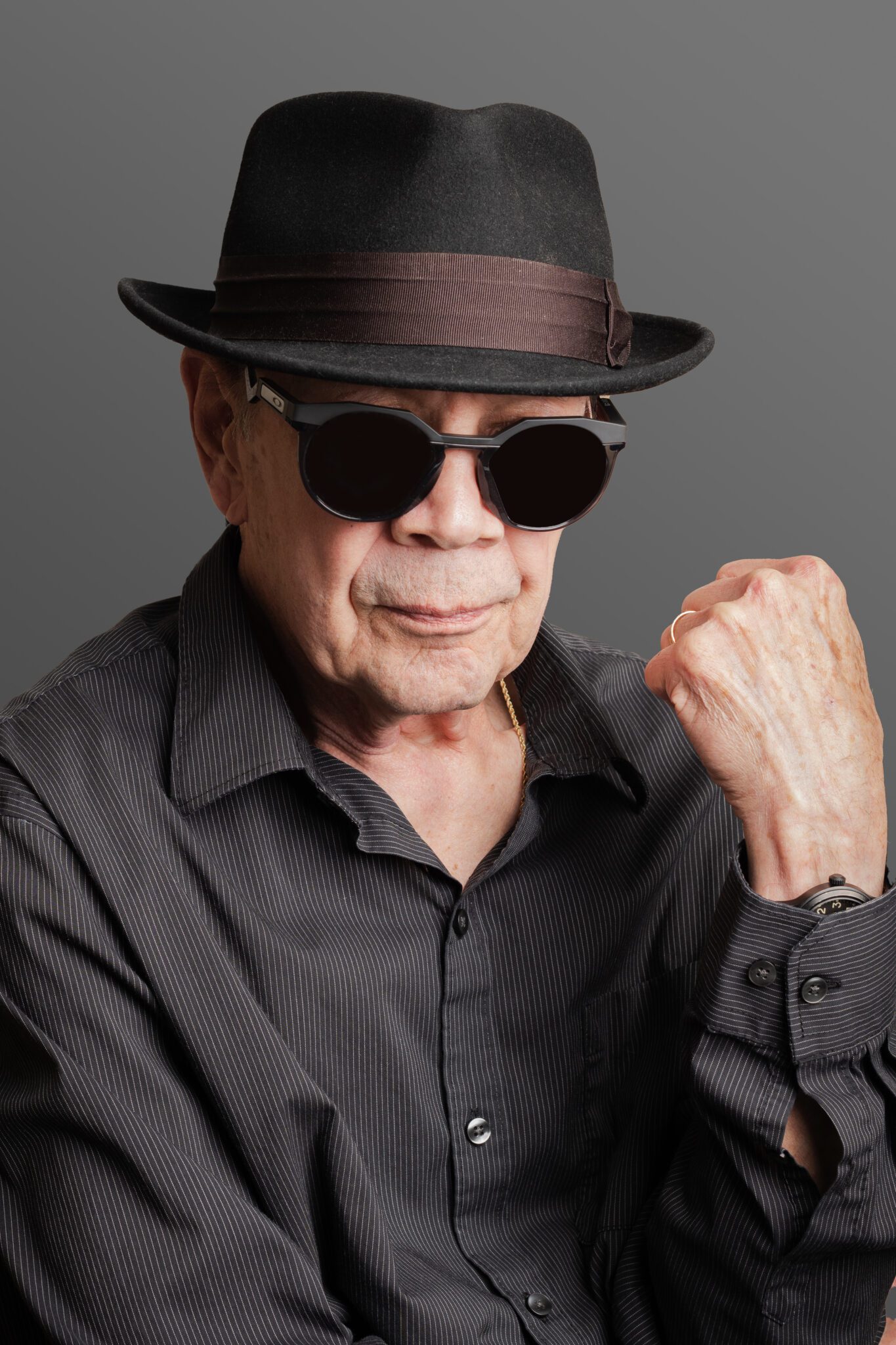
Essence of a Good Song: “Since I’m dealing with my own experience, I need to relate to the story in a song 100 percent. And there has to be an ability to tell a story based on truth and facts and not feel contrived about it. I appreciate an artist who can tell their own story. And they can only do that by writing their own songs.”
Finding Success in Germany: “We licensed some of our material to a record company in Germany and we did this TV show. 130 million people got to see what we had to offer. And apparently they liked it. And they liked it enough to offer a fan base that would last for generations. Once they like somebody over there, they stick with them through their whole career. They had a chance to do that, where in America they did not. And that’s why my mantra has been that we need to have that exposure in the United States somehow.”
Vocal Health: “I simply don’t worry about it. It’s a gift from God. He gave it to me and he’ll take it when he wants to. But there is nothing unusual about my diet. Chocolate milk is my favorite drink.”
Best Music Career Advice: “Get yourself a lawyer and an accountant if you’re serious about wanting to go forward as a musician. Also, how deep is your commitment to music? Probably 99 percent of musicians have the talent. But they have to abandon it. A family comes along and the need to not like starving comes along. You need to survive, and the world might not be ready to hear your latest creation. In such cases you have to take on other responsibilities to sustain yourself and make your money.”

